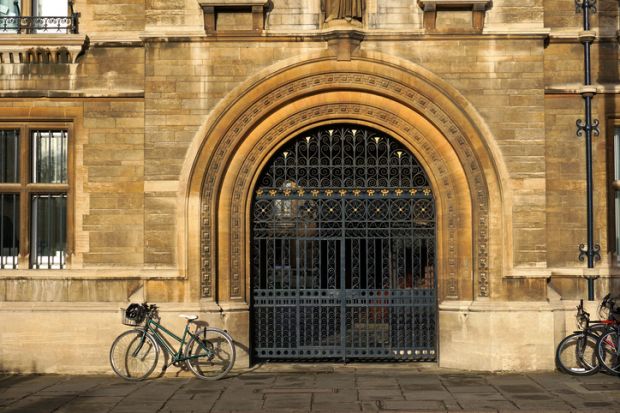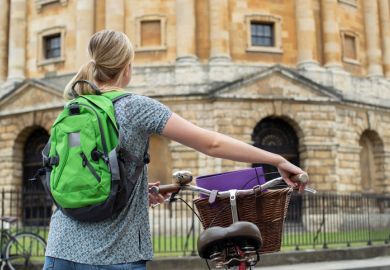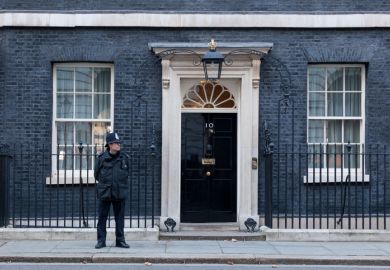University admissions decisions, including who is interviewed for places, must be a matter for the institutions themselves and be kept free from political interference, according to the University of Cambridge’s pro vice-chancellor for education.
Graham Virgo said he had several concerns about the policy suggested by the front-runner to become the UK’s next prime minister, Liz Truss, who wants all students who achieve three A*s at A Level to be guaranteed an interview at Cambridge or the University of Oxford.
He said, although he was not aware of any engagement with Ms Truss or her team in advance of the policy being announced, the institution had given its implications “some consideration”.
Professor Virgo added that he was “very concerned” about the “apparent political interference with the autonomy of universities” that arose from the policy and could also potentially undermine the Higher Education and Research Act 2017, which preserves the principle.
While the university was happy to work with government and others to ensure “students with the ability and potential to excel at Cambridge – and other excellent universities – get into those universities”, Professor Virgo stressed “admissions decisions, including who we interview, must be for us”.
Ms Truss’ flagship policy was seen as a key part of her pitch to become an “education prime minister” if she beats rival Rishi Sunak in the ballot of party members, the results of which are due to be announced on 5 September.
Many in the sector have already raised concerns that the policy demonstrated too narrow a focus on the two Oxbridge institutions, neglecting other universities.
Mr Sunak has vowed to crack down on degrees that do not improve graduates’ earning potential in the only other significant policy intervention either candidate has made in the higher education space since the race began, with both expected to follow a broadly similar course to that of outgoing prime minister Boris Johnson.
To facilitate her idea, Ms Truss has pledged to look at whether the academic year would need to be shifted to start in January to allow for post-qualification admissions (PQA), under which pupils apply to university after they have received their exam results.
Professor Virgo said he was “surprised” to see the switch to PQA proposed again in the UK so soon after similar proposals were scrapped by the Department for Education earlier in the year.
Although the university’s position has previously been in favour of post qualification offers, Professor Virgo said “there are complex arguments here which need to be carefully considered”.
Aside from the practicalities of the policy, Professor Virgo questioned why Ms Truss had chosen to focus on Oxbridge “when there are many exceptional universities in the country”.
He said Cambridge “may not offer the courses or the mode of teaching and learning that students are looking for” and would also want to continue to interview students who do not achieve three A*s but demonstrate a “potential to excel”.
The university’s typical offer is for two A*s and an A for science subjects and one A* and two As for other subjects but, with nearly 13,000 pupils achieving three A*s in their A levels in 2021, the introduction of Ms Truss’ policy may well mean that the universities would no longer be able to interview anyone getting below these grades.
Register to continue
Why register?
- Registration is free and only takes a moment
- Once registered, you can read 3 articles a month
- Sign up for our newsletter
Subscribe
Or subscribe for unlimited access to:
- Unlimited access to news, views, insights & reviews
- Digital editions
- Digital access to THE’s university and college rankings analysis
Already registered or a current subscriber?








